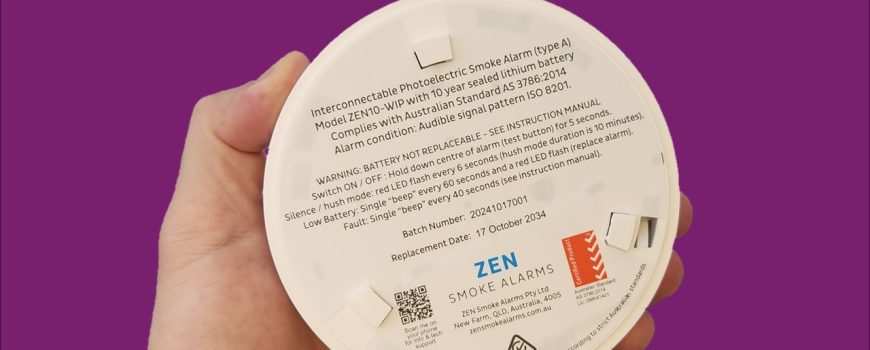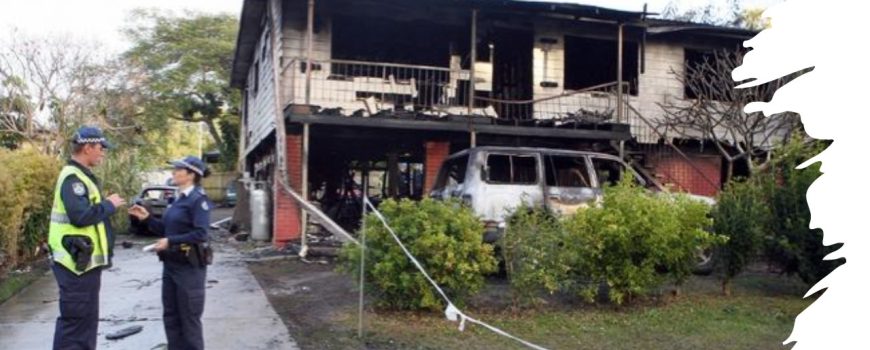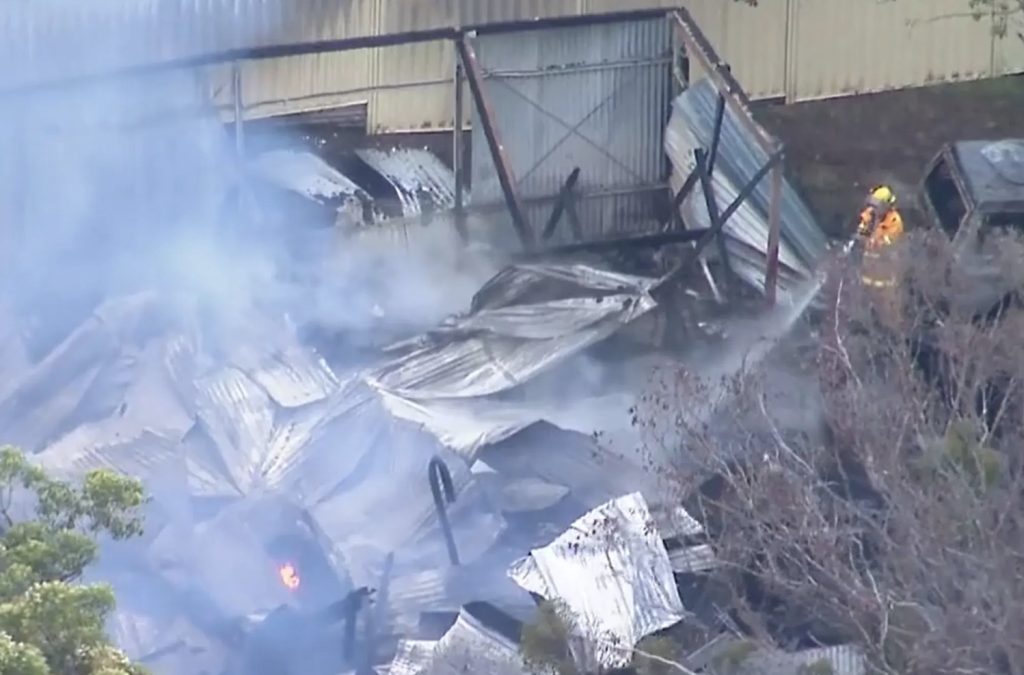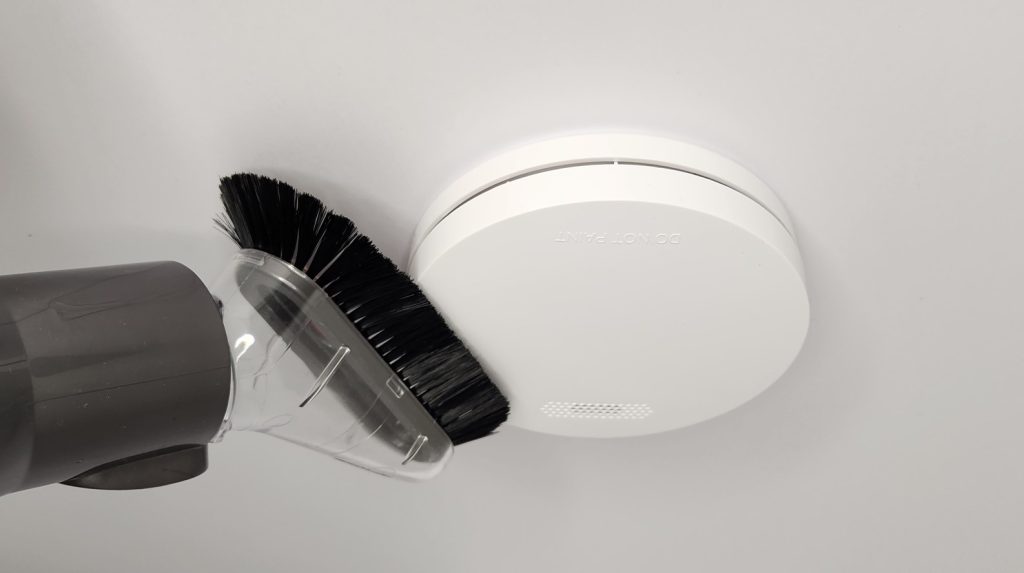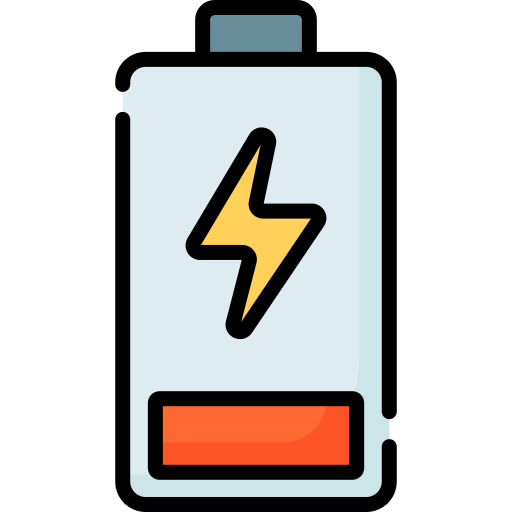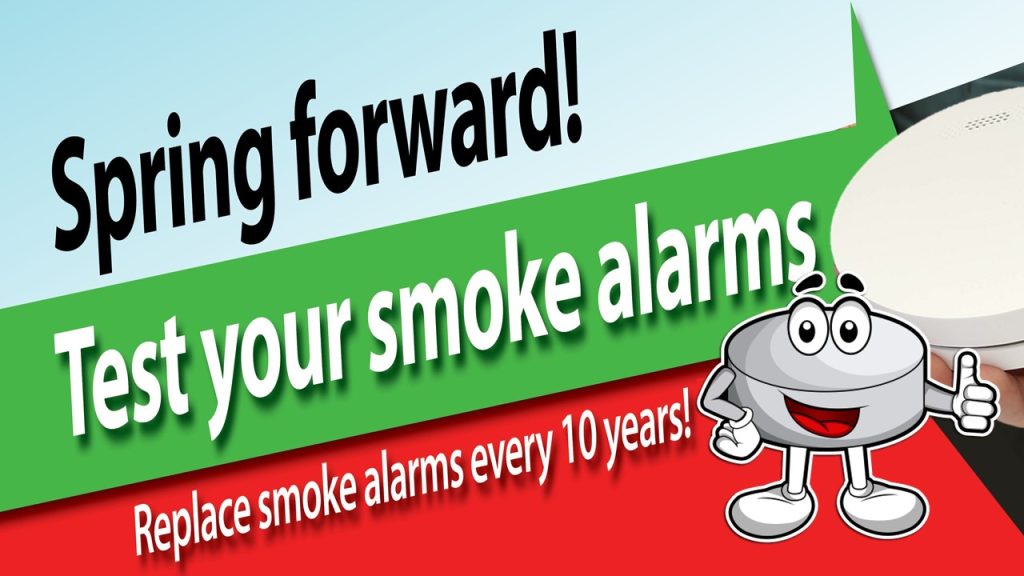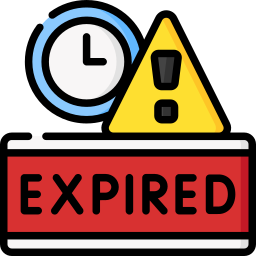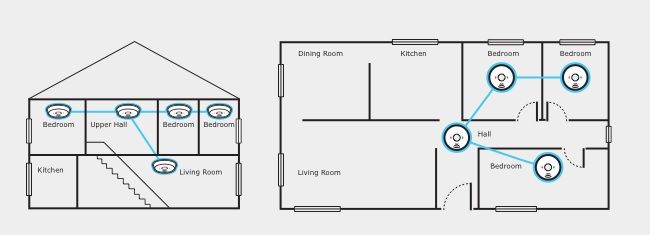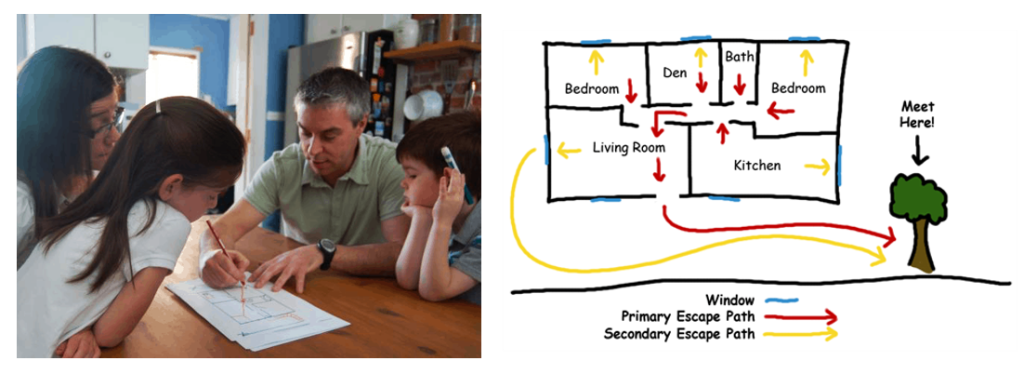QLD smoke alarm laws are the most stringent in the nation. These laws have been amended and updated over time due to several tragic fires which have resulted in significant loss of life.
QLD Smoke Alarm Legislation
The two main pieces of legislation in Queensland are the;
- Fire Services Act 1990 (previously known as the Fire and Emergency Services Act 1990)
- Building Fire Safety Regulation 2008
The objectives of the legislation are to ensure that all fire safety installations (including interconnected photoelectric smoke alarms) within a building are maintained, and to ensure that people can safely evacuate from a building in the event of a fire.
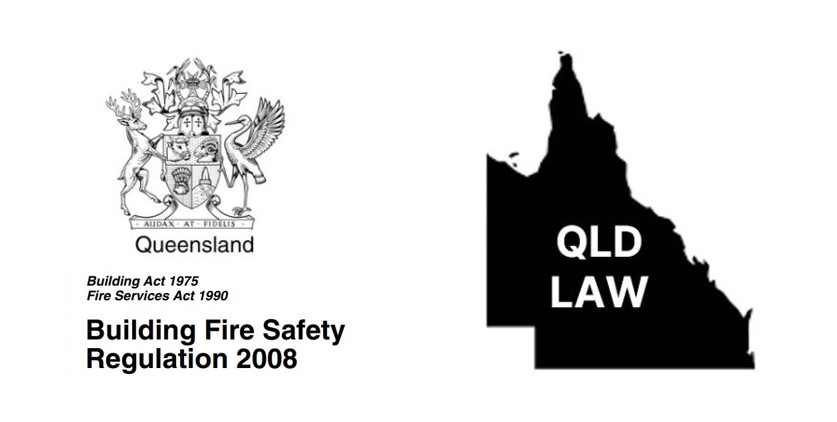
Building Fire Safety Regulation 2008 – QLD Smoke Alarms
Part 5A of the QLD Building Fire Safety Regulation 2008 deals specifically with photoelectric smoke alarm requirements for domestic dwellings. It states that smoke alarms must;
- Comply with the Australian Standard (AS 3786:2014).
- Contain a photoelectric sensor, and not also contain an ionization sensor.
- Be either hardwired into the building’s main power supply or powered by a non-removable minimum 10-year lifespan battery.
Where Should QLD Smoke Alarms Be Installed?
Part 5A also states exactly where photoelectric smoke alarms must be installed inside a domestic dwelling (prescribed locations). It says that photoelectric smoke alarms must be installed in;
- each bedroom.
- the hallway which connects each bedroom.
- if there is no hallway connecting each bedroom, then a part of the storey that is between the
bedroom and the rest of the dwelling. - for each storey with no bedrooms—on the most likely travel path of exit from the dwelling.
Where Shouldn’t QLD Smoke Alarms Be Installed?
Part 5A (3) also provides exact distances and measurements where photoelectric smoke alarms should / should not be installed. It states that photoelectric smoke alarms must not be installed;
- within 300mm of a light fitting.
- within 300mm of a corner of the ceiling and a wall.
- within 400mm of an opening from which air is supplied from an air conditioner or forced air vent.
- within 400mm of the blades of a ceiling fan.
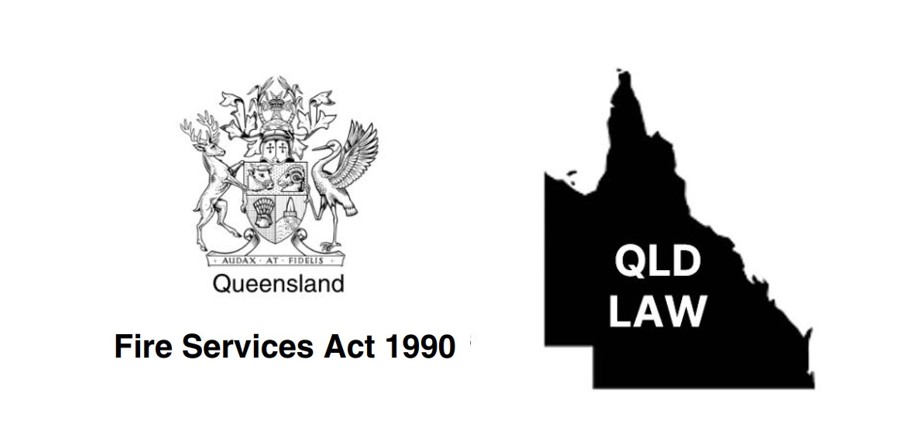
Fire Services Act 1990 – QLD Smoke Alarms
In addition to the above, Division 5A of the QLD Fire Services Act 1990 (previously named the Fire and Emergency Services Act 1990) stipulates that from 1st January 2022 all rental properties and properties being sold in Queensland must have photoelectric smoke alarms which;
- Are less than 10 years old.
- Operate when tested.
- Be interconnected with every other smoke alarm in the building so that all activate together.
If the smoke alarm being replaced was hardwired to the domestic dwelling’s electricity supply, the new replacement smoke alarm must also be hardwired to the dwelling’s electricity supply and be a photoelectric smoke alarm. Any newly constructed homes or substantial renovations must have interconnected photoelectric smoke alarms which are hardwired to the mains power supply. A definition of a ‘substantial renovation’ is provided within the Act.
Furthermore, these interconnected photoelectric smoke alarm requirements will become mandatory for ALL dwellings in Queensland by 1st January 2027.
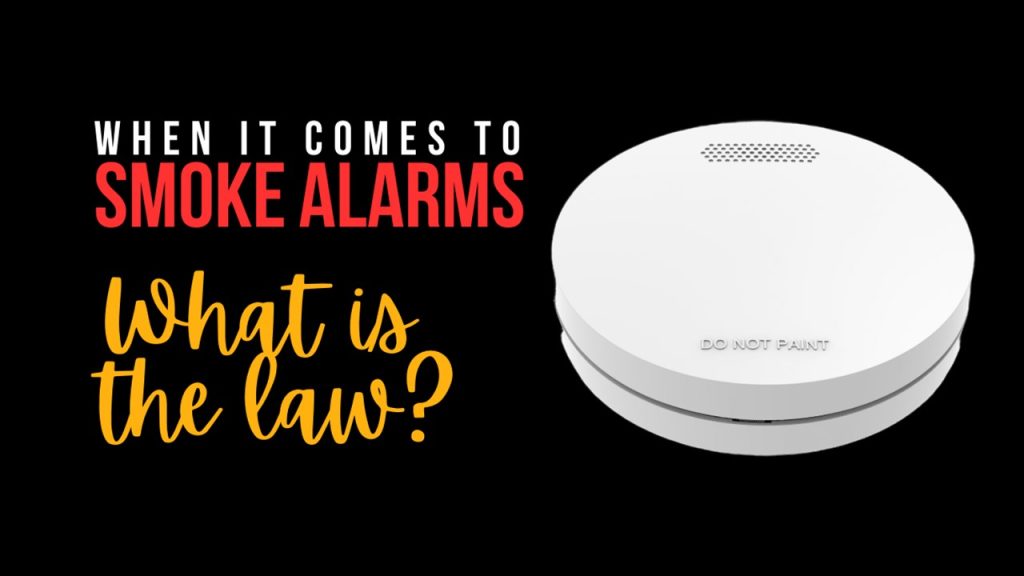
Photoelectric Smoke Alarms In QLD Rental Properties
With respect to QLD rental properties, in addition to all the above points, the Act also states that;
- The lessor must test each smoke alarm within 30 days before the start of a tenancy in a domestic dwelling.
- The tenant must test each smoke alarm in the dwelling at least once every 12 months.
- If the tenant is aware a smoke alarm in the dwelling has failed, the tenant must advise the lessor as soon as practicable.
- The tenant must clean each smoke alarm at least once every 12 months.

Direct links to the QLD government website are posted below if you would like to read the full legislative documents for yourself.
QLD Building Fire Safety Regulations 2008 (current as at 01 July 2024)
QLD Fire Services Act 1990 (current as at 01 July 2024)

Want to know more? Watch our ZEN Smoke Alarm YouTube channel or call us on 0478 596 402 today
We love talking smoke alarms!
ZEN Photoelectric Smoke Alarms
New Farm, QLD, 4005

